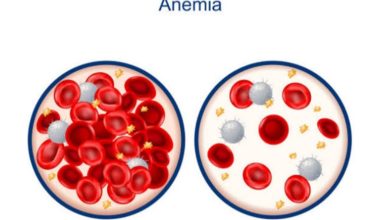Non-Communicable Diseases (NCDs): Prevention, Screening And Control

Non communicable diseases (NCDs) are chronic diseases, such as heart disease, cancer, stroke, and diabetes, that are not contagious but affect millions of people worldwide. These diseases are leading causes of death, accounting for more than 70% of all deaths worldwide.
Most NCDs share common risk factors such as tobacco use, unhealthy diet, physical inactivity, and the harmful use of alcohol.
The World Health Organization (WHO) recommends a comprehensive “snapshot” approach to address NCDs, including preventive interventions to reduce risk factors, early diagnosis and screening, timely and appropriate management of the diseases, and access to quality and equitable care for people with NCDs.
While there is no single solution to prevent and manage NCDs, there are steps we can all take to reduce the risk.
- Eating a healthy diet,
- Getting regular physical activity,
- Avoiding tobacco products and alcohol,
- Seeing a doctor regularly for check-ups can reduce the risk of NCDs.
Additionally, there are government-recommended vaccinations for some NCDs, such as hepatitis B and HPV, that can help protect against the diseases.
Regular screenings, especially for the elderly, are also important for detecting NCDs early. Checking illnesses early can improve the chances of successful treatment and can reduce the burden of NCDs.
See Also
Preventing Careless Driving and Reducing Accident
Impact of Environmental Pollution on Our Health and Ecosystems
The WHO recommends screening tests such as mammography for breast cancer, Pap tests for cervical cancer, and colorectal cancer screening for people over the age of 50. They also recommend health check-ups to check cholesterol and blood sugar levels in people with risk factors for cardiovascular diseases.

NCDs cannot be prevented or cured, but treatment and management can help prevent complications. Medications, lifestyle changes, and dietary changes can help manage NCDs and reduce the risk of serious complications.
- For example, people with diabetes can manage their disease with diet and exercise, and by monitoring their blood sugar levels and taking insulin.
- People with cardiovascular diseases can reduce their risk by managing their cholesterol and blood pressure levels, eating a healthy diet, and exercising.
Through comprehensive national and global health policies, preventive measures, health education, and access to quality care, the burden of NCDs can be reduced.
Preventive measures such as vaccination, healthy diet and lifestyle, and regular screening can play an essential role in preventing and managing NCDs. Ultimately, through collective efforts, we can reduce the global burden of NCDs.




3 Comments